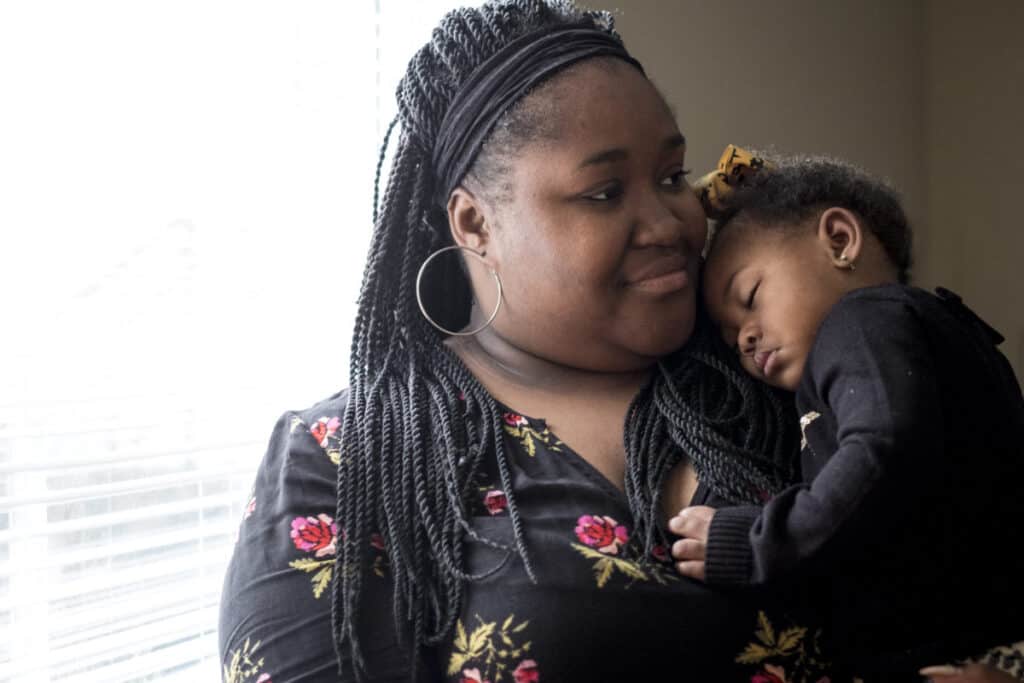If your child has an IEP or is struggling in school, your goal is to support them – and one of the best ways you can do this is by partnering with the school.
Remember that schools should have the same hopes for your child as you do: they want students to learn, make progress, and be happy and confident. Sometimes it may not seem that way, but it’s good to approach the conversation with that assumption.
Communicating well with the school is a key part of helping your child get the right support. But it can be hard to work together smoothly if you feel your child is not getting what they need. We all get protective and emotional when it comes to our children, and this can make communication tricky. And while schools want students to succeed, they often have limited resources to meet all students’ needs. It’s not easy, but here’s what you need to aim for: advocating firmly for your child without turning it into a fight.
What does it mean to “partner” with the school?
Remember that you are an equal partner and have rights through the IDEA law. You have a right to make sure that the school identifies any disabilities that your child may have, and that the school provides specialized services if your child has learning or developmental disabilities. This adds up to IDEA’s core right: that your child gets a Free and Appropriate Public Education (FAPE).
To be a great partner with the school, you will need to know your and your child’s rights and approach the school with a belief that you all have the same goal for your child.
It can help to fall back on these rights, and the law itself, to take the emotion out of it. Instead of saying, “Hey, you’re not giving my child x, y, and z!”, try something like “I know that IDEA requires you to give my child an ‘appropriate’ education. Let’s see how we can agree on what’s appropriate.” If the school knows that you know your rights, they may be more willing to compromise.
Who should you work with at the school?
It helps to know who at the school is in charge of what, and how to take it to the next level of authority if you need to.
From your child’s teacher to the school administration leaders, there are several people and departments to work with. Here’s a rundown.
Teacher
It’s best to start with your child’s teacher and have a good system to be in touch regularly. Find out the best way to communicate: phone, email, texting, or regular meetings. Remember to ask for assessment results to help keep track of your child’s progress, and make sure that IEP services and accommodations are being done consistently.
Specialists and Therapists
If your child works with specialists, set up a good system to communicate with them also. These could include reading specialists, counselors, or therapists for speech, behavior, PT, or OT.
School Psychologist
This is the person who usually coordinates the special education evaluation. They can also help with social or emotional needs, or behavior assessments and strategies.
Principal
If you need to talk to someone a step higher up, talk with the principal. They can also help you contact the district’s special education department if needed.
School District’s Special Education Department
One step higher would usually be your district’s Special Education Department. Sometimes this is called something else, like Exceptional Student Services (ESS) or the Office of Student Services (OSS). They can help if you are not happy with how things are going with your school contacts, or if you want to ask questions about special education services that the teacher or specialists can’t answer.
The State Department of Education
If you think the school has denied your child’s legal rights, you can file a complaint with the Department of Education. This is often called “violation of FAPE”. There is a formal process for Dispute Resolution if you have disagreements with the school.
If your child has an IEP (Individualized Education Program)
Your IEP team will usually be your first contact if you have a question or problem. When you start the process, ask who to get in touch with for different kinds of questions. When do you ask the teacher, specialist, or school psychologist? Who do you call if the normal communication isn’t working? Sometimes they will have one point of contact, which is often the school psychologist, but not always. But make sure your communications get passed on to the whole team.
Remember that if you have concerns, you can ask for an IEP meeting anytime, even if it’s between your annual meetings.
**********************
Louisiana:
Dispute Resolution resources for Louisiana:
- Call the LA Department of Education at 225-342-3572 or see Dispute Resolution info on the Louisiana Believes webpage
- A Good IDEA for Louisiana: A Guide for Parents and Students About Special Education Services – 103-page booklet for lots of detailed information. It’s easy to understand and explains the process for Dispute Resolution. It even has sample letters that you can adapt for your own needs
- Louisiana’s Educational Rights of Children with Disabilities: Special Education Processes and Procedural Safeguards – 29-page booklet. Dispute resolution starts on page 15
**********************
Tips for communicating with the school
- Identify a main point of contact and plan a regular schedule of checking in. Maybe a quick daily note, an email every week or a phone call every month?
- Find the best way to keep in touch. It may be a mix of meeting in person, phone calls, or email
- Some teachers create a school-to-home notebook that goes back and forth. Teachers, specialists, and parents can write in notes for each other, every day or as needed
- Write down your questions before you call or meet. This will help you remember all your points and reduce stress during your conversation
- If you don’t understand something, ask them to say it in a different way. Don’t pretend to understand if you don’t
- Be respectful and open-minded, but firm. Listen to other ideas and consider carefully before you dismiss anything. Ask others to do the same
- Keep focused on the needs of your child. If the discussion gets heated, remind yourself and the team that the point is to decide what’s best for your child
- Fall back on the law and your rights
Check out these short videos about communicating with teachers:
- Effective Strategies for Parent-Teacher Communication
- How can special education teachers and parents work together?
Keep records of all your communication with the school!
These records can help you keep track of what you talked about, and document what interventions the school has already tried. It can also prove what you have asked for, and when. Your records may help later on if you have to stick up for your rights.
Include emails, letters, phone calls, even conversations. Make sure there’s a date on each.
If you talk with a teacher or someone from the school district and agree on something, follow it up with an email:
“It was nice to talk to you today, Mrs. Smith. Thank you for agreeing to make sure Joe sits at the front of the class. That will help him a lot.”
Learn about how to use a paper trail.
Know your rights to getting information in your language
If English is not your preferred language, there are a few more steps to communicating well with the school. The IDEA law gives you certain rights, and some of these relate to communication.
You have the right to get all written information in your preferred language, and have a professional interpreter at all meetings, if needed. YOU are the person who decides if you need an interpreter. A school may not feel that you need one based on their experience with you, but the decision is not up to them.
If you need an interpreter, set it up in advance with your IEP team as soon as the meeting is scheduled. Put your request in writing. It should be a professional interpreter, not a family member (including your child) or someone who works for the school. See this video about getting a qualified interpreter.
A few days before the meeting, confirm that they have scheduled an interpreter. (It’s their responsibility, but unfortunately, it sometimes takes a few reminders to make sure it happens). Read the section of IDEA about interpreters. If the school is not able to find an interpreter for the scheduled meeting, you have the right to reschedule the meeting.
If your child is old enough to be part of their own IEP meetings and needs an interpreter, they should get one, even if you don’t need it.
It’s not always easy to communicate effectively with the school. But partnering with the school is the best way to support your child. it will help to know your rights, identify your contacts, be respectful yet firm in your conversations, and keep written records. And it never hurts to take a deep breath…frequently!



